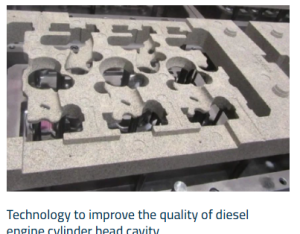In the rapidly changing market of today, low-volume manufacturing offers numerous advantages for businesses who need to perform quickly and remain competitive. This production method is ideal for industries requiring customization, frequent iterations, and precise quality requirements. Here, we explore the unique benefits of low-[c1] volume manufacturing that could revolutionize the business plan of a company.
Flexibility and Agility Improved Last Mile Delivery
Fast Reaction on Market Demand
And best of all, low-volume manufacturing means that you can react quickly to the shift of market demand without producing dozens of physical products. Some items have unstable demand or get outdated fast, like tech gadgets, you need the flexibility of changing your production volume on short notice. Maximize profits on sales while reducing excess inventory costs, which may amount to 20-30% of the cost of the product if not properly managed.
Tailored for Niche Markets
This works best for those who cater to niche markets that do not require high volume but do need both specialized and custom production. Small batches can be easily customized to meet the needs of individual customers, much like mass production setups, but at a fraction of the financial burden.
Joining New Markets in a Cost-Efficient Way
Lower Initial Investment
Low-volume manufacturing can make entering a new market less costly. Companies can test products then without investing in expensive production setups typical for larger scale businesses. You will be able to save 50% more costs that you currently require to set up high-volume production lines which can be helpful for startups and small businesses.
Mitigate NPDI Risk
New products are inherently risky as they are subject to uncertainties in consumer acceptance and market behavior. Low volume manufacturing helps to address this risk by offering the companies an opportunity to run a small batch of their products to test the market and evaluate how the market reacts before scaling up. Not only does this limit the maximum loss, it also gives you the real market feedback / data that can be used to further validate / build the product.
Best for Complex Designs and Customization
High Degree of Customization
As we know: low volume automation is suitable for a high-mix low volume production line, an increasingly asked for feature from the customer side today. This ability to address individual preferences and needs brings unprecedented customer satisfaction and loyalty, and helps companies outshine their competitors! In those kinds of industries, which include automotive and other differentiated luxury goods, that kind of ability to tweak products is a significant competitive advantage.

Facilitate Complex Designs
When you consider all of this, creating more complex designs is also made possible since the technique is simple. Using methodologies such as CNC machining, 3D printing, and modular molds we can design complex parts without the need to create such expensive tooling. This is a crucial capability for industries such as aerospace and medical devices where complex, precision-engineered parts are needed regularly but in low volumes.
Conclusion Sustainable Manufacturing Practices
WASTE TREATMENT: Waste and Pollutants By using less material in each component and attaching fewer hooks, fewer of our products end up in the garbage, resulting in fewer unnecessary waste, saving our planet's resources and reducing our environmental impact.
Less waste; excess production and unsold goods is a large issue for many companies and low volume manufacturing helps to alleviate this widespread problem. Allowing manufacturers to only make products based on actual demand minimizes material waste and energy usage, supporting sustainability goals on a global scale.
Promote Local Production
Low-volume manufacturing yields even more positive environmental effects when converted to local (as opposed to global) supply chains, as this reduces the carbon dioxide emissions associated with its transportation. Not only sustainable, but also more beneficial for local economies, this transition supports local production.
Low-volume Manufacturing is a strategic approach for businesses who want to stay nimble, and innovate rapidly, cut down the risks. To learn more about the advantages of low volume manufacturing for your business, visit our website. This mindset drives far greater flexibility and cost efficiency, setting you apart from the competition in your industry.